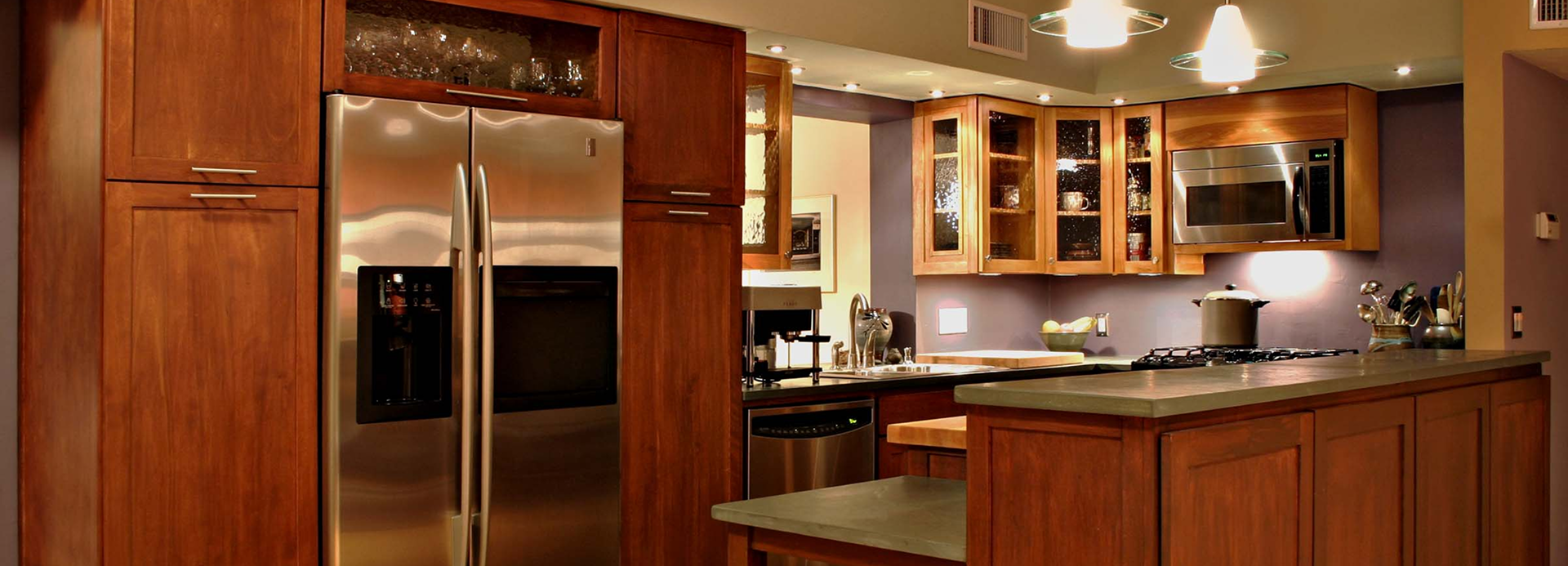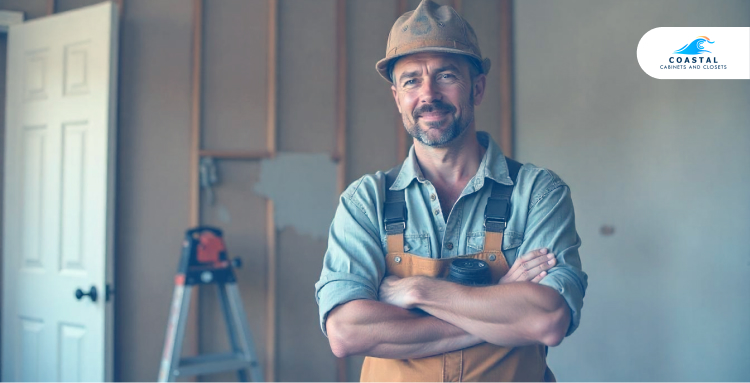Time and time, again, I run into prospective customers, which, never seem to learn. So, I am writing this article, as a reminder or a lesson. I hope it helps you...
I love Stephen Covey's mantra, "fast is slow". I would like to add, "cheap is expensive". Typically, you can have one or two of three things, when making a purchase. Those three things are: quality, speed of delivery and low price. As a contractor, I get to meet with many clients, while I get to see the problems they're having with the previous choices they've made or the service or product they’ve received. Certainly, it is not true, that the highest price always gets you the best product and/or the best service; However, when you're shopping for any kind of home improvements or products, I will remind you, typically, you will get what you pay for. Strongly, I recommend, you should do a little research, online, about the improvements that you are considering or needing, to figure out what a reasonable budget for your project should be, for your area, along with the value of your home, before you beckon contractors for estimates. This will prepare you to make better decisions, as you are meeting with contractors and getting estimates.
As well, find out from your local building department, if your work will require a permit. Plans and permits cost money; Hence, adding to the cost of the project. Speaking for Florida, if you're not hiring an interior designer, you should be able to get plans and permits between 3% and 10% (depending on the sort of plans required) in addition to the cost of the project. I don’t think it is that much money, compared to the cost of the project; But, be sure to figure that into your numbers, when you are creating your budget. Even contractors with the best intentions can forget or miss important things; So, those building inspectors are another level of check and balances that I find to be very important. Doing work without required permits is becoming more and more of a grave mistake, as insurance companies and banks bare down on owners about signing affidavits stating that all of the work has been done with proper building permits. I’m pretty sure you don't want to find yourself in a lawsuit, years after you have sold a property. Attorneys are making plenty of money with this, already. For your information, I've seen it take anywhere from three days to 10 months for plans to get a final approval with a building permit in hand. Many things play in to how long it will take to get your plans and permit approved. You must factor this into your schedule. By the way….pretty much everything requires a building permit. Don’t trust a contractor’s word…call your local building department to find out, for yourself.
Make sure you are hiring the proper professional. Make sure you are hiring someone that is going to watch out for your best interests, as the project is in progress. Someone that will stay focused on your project, until it is complete. It is true, cheap, inexperienced contractors cut corners and work, carelessly. I've found them to be using inappropriate or cheap tools, materials and equipment to get the job done, leaving a huge extra mess or an unacceptable final product, all the while, rushing through the job, because, they priced it so low. That means, they are not taking the proper steps to complete your job, correctly, and they are taking chances to damage other people's property and/or themselves, without insurances in place! I have never met an owner that wanted an injured worker on their property. Always, make sure you have some sort of third-party references, whether they be online reviews from verified purchasers, or checking with the Better Business Bureau, to see if they have complaints about a company, etc. Also, if you are not 100% sure it is a sizable and reputable company you are dealing with (8 plus years in business, positive online presence, etc.), don’t be afraid to see the contractor’s driver’s license, before you sign an agreement with them. Write down their legal name and address, and check their professional license, online. Make sure it is active and in good standing. You only get to do this, once…BEFORE you sign and put money in their bank account. Trust no-one…no matter how ‘warm and fuzzy’ they make you feel. If they don’t have a professional license for what you are hiring them to do, RUN!…They have zero accountability and zero reasons not to rip you off.
When are you gonna’ finish?!?! Don’t surprise-rush your contractor to completion. Nine times, out of ten, this will result in a poor ending to your project. If you've made a mistake or an oversight about how long your project will take, start to finish, or you have waited too long to get a project started, don't try to push that onto your contractor. Probably, it won't work. It will end with lots of stress and drama, that nobody wants or needs. Be reasonable. Listen to your contractor's honest opinion about schedule, do your research, and come up with an amicably agreeable amount of time for the project to be completed. Also, think about what project you want to do, if it's a long or short-term project, and what time of year it is, regarding the weather. If the weather could or is likely to play a horrible and negative affect on your project, wait. If one of the contractors that you are getting bids from is giving you a dreamy completion date, challenge him by asking if he would be willing to pay a daily fine for everyday they exceed the agreed completion date; Then, you will hear the truth about when they think they will finish. FYI…I would never sign such an agreement. I can never be sure what is going to happen during a project….even if it gets down to weather or health/injury, etc…we never know. This is merely a way to make them be honest.
You want how much?? Did you know, contractors aren't allowed to take more than 33% of the total project price as a deposit, if they are not starting work within 30 days? Be sure to have a proper agreement, in writing, spelling out what the scope of work is, the total price, and when the deposit and subsequent draws will be due. Do not be late with your draw payments and do not let your contractor talk you into making any payments, early. Have your contractor explain his thinking on schedule and scope of work, according to the draw schedule, to make sure he is not able to front-load money from you and walk. If you want extra work done or need a change order or extra work, make sure you have something in writing with a price. Personally, I require customers to pay for extra work orders, upfront, before I do any of that work. In my agreement, I make it clear, that certain email addresses are an acceptable and legally binding form of communication for extra work orders or change orders, etc. If the work can put you at high risk, if something goes wrong, or the work is what you would consider costly, it is rarely a bad idea to have an attorney review the contractor’s agreement, before you sign it.
What ?!? There’s a Problem?!?! No matter who you hire, be prepared for some things to go wrong, large or small... it's inevitable. If it happens, don't freak out. Have some confidence in your research and the person you hired. If you hire the right contractor, they will remedy the problems, professionally. If they haven't been to your job site, recently, and you think they should be, tell them. If they are ghosting you, you may need to have a lawyer send them a letter. Between Maryland and Florida, I've been a licensed contractor for over 30 years. Do what I do, when you hire a contractor, make sure that they have obtained the proper license and insurances for their trade. This includes workers comp for the workers. Don't let them fast talk you. Somehow, they can and should have WC for the workers... even if it is expensive... and it is expensive. Employee leasing is a great option, if they don't want or can't have their own, standing WC policy. If they don't have WC on the workers, stop work and find a replacement that does. As well, I make sure that certain trades have third-party training or certifications and affiliations, to help ensure that they are going to do a perfect and professional job for my customer. You can begin this process by checking a company's license with the DBPR (Florida Dept. of Business and Professional Regulation). Strongly, I recommend that you make sure you do not do business with someone that is using someone else's license, with or without permission, to operate or to pull a permit. There's a reason they don't have a license, themselves…and I can’t think of any good reasons.
Finally, if you are hiring a general contractor for a project that involves multiple trades and subs; Remember, they have to put up with and handle and pay for all of the things I've written about, in this article, times twenty (or more). It ain't easy!! Honestly, I think most good contractors don't get paid the money they deserve. It is a massive, stressful, headache of a job, ending with lots of liability and responsibility for the project they've completed. I think customers need to be reasonably patient, understanding and empathetic of their contractor's position. It's a two-way street; customers need good contractors, and contractors need good customers. After you find a good contractor, be a good customer.
Remember...Be careful about how thrifty you are...
"Great Price?!...Pay Twice."
Please, remember us for ALL of your cabinet, closet, countertop and millwork needs.
Professionally yours!
John Kraft
Coastal Cabinets and Closets, LLC
Copyright. All rights reserved.


